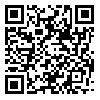BibTeX | RIS | EndNote | Medlars | ProCite | Reference Manager | RefWorks
Send citation to:
URL: http://jpcp.uswr.ac.ir/article-1-437-en.html
2- Department of Psychology, Faculty of Education and Psychology, University of Tabriz, Tabriz, Iran. ,
3- Department of Psychiatry, School of Behavioral Sciences & Mental Health, Iran University of Medical Sciences, Tehran, Iran.
4- Department of Clinical Psychology, University of Social Welfare and Rehabilitation Sciences, Tehran, Iran.
Objective: The present study was carried out to examine the efficacy of psychoneurotherapy (PNT) on reducing symptoms severity in treatment-naïve patients with obsessive-compulsive washing. This study evaluated a new form of psychotherapy based on neurobiological model of obsessive-compulsive disorder (OCD).
Methods: The study was conducted as a quasi-experimental research. The statistical population of this study included 130 obsessive-compulsive washers. A total of 40 patients were selected using inconvenience sampling method and then were randomly divided into two groups: PNT group (n=20) and sham feedback control group (n=20). Both groups received drug treatment, in addition, the experimental group received 20 sessions (twice per week) of PNT. The Yale-Brown obsessive compulsive scale (Y-BOCS), Maudsley obsessional-compulsive inventory (MOCI), depression, anxiety, and stress scale-21 (DASS-21), subjective united distress scale (SUDS) were administered before and after treatment. Eelectroencephography (EEG) was recorded in eyes open provocation stimuli condition. All EEGs were recorded drug free. Participants were prescribed PNT protocol based on the results of their quantitative EEG (QEEG) and low-resolution electromagnetic tomography analyses. The effects of PNT were analyzed using 1-way analysis of covariance (ANCOVA) after controlling pretest scores. The effect size (Cohen’s d), paired t test, and clinically significant change were calculated and assessed for all the clinical instruments.
Results: Thirty patients completed this study. Despite some methodological limitations, our results indicated that psychoneurotherapy is significantly efficient on treatment’s target. ANCOVA results supported that PNT could significantly improve the severity of OCD symptoms, depression, stress, anxiety symptoms, and subjective united distress scale compared to what was seen sham feedback control group (All P<0.001).
Conclusion: Psychoneurotherapy showed preliminarily evidence for the efficacy in the treatment of patients with obsessive-compulsive washing. The study is an attempt to provide a new non-invasive treatment of OCD washing. Future studies are needed to confirm our findings.
Received: 2016/05/7 | Accepted: 2016/09/1 | Published: 2016/10/1
| Rights and permissions | |
 |
This work is licensed under a Creative Commons Attribution-NonCommercial 4.0 International License. |







